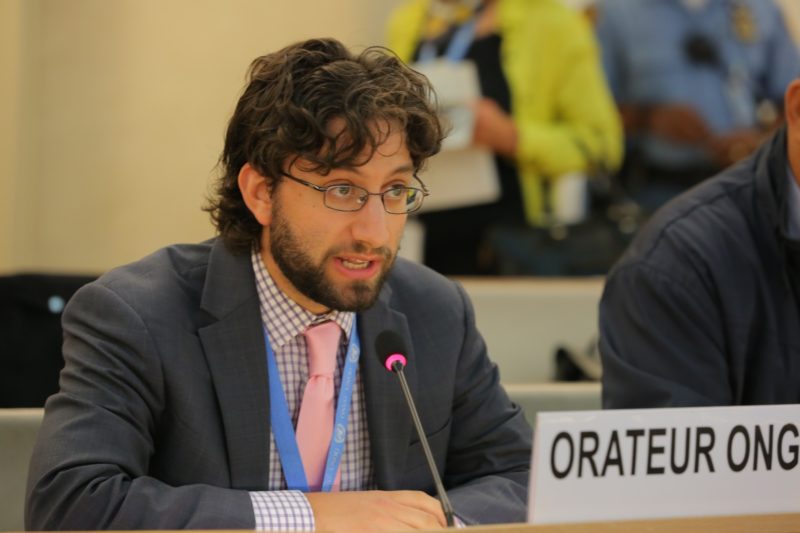On Monday 25 June, during the Item 3 General Debate at the 38th session of the Human Rights Council, ADHRB’s Saudi Advocacy Associate Tyler Pry delivered an oral intervention highlighting restrictions on freedom of expression and opinion in the Gulf Cooperation Council states, in particular Saudi Arabia and the United Arab Emirates. Pry especially noted the arrests of activists, human rights defenders, journalists and bloggers for their dissident views. Click here for a PDF of the text of his intervention.
Mr. President,
Alsalam Foundation and ADHRB would like to raise concerns about the ongoing suppression of the right to free expression in Saudi Arabia and the United Arab Emirates, in particular the targeting and jailing of dissident clerics, journalists, and human rights defendants.
Saudi Arabia has consistently and systematically targeted dissident voices, arresting dozens of activists, academics, writers, and clerics within the past two years. In September 2017, officials arrested several prominent clerics including Salman al-Awda, Awad al-Qarni, and Ali al-Omari, because of comments they made, including some calling for reforms and reconciliation with Qatar.
Saudi authorities have also arrested numerous writers, journalists, and bloggers. Among those arrested is Saleh al-Shehi, a journalist and columnist for Al-Watan. He joins at least seven other journalists, including Nadhir al-Majid, Wajdi al-Ghazzawi, Alaa Brinji, and Raif Badawi in prison.
The UAE also targets activists who have made comments critical of the government. For example, prominent human rights activist Ahmed Mansoor was recently sentenced to 10 years in prison on charges of “insulting the status and prestige of the UAE” and for critical comments he made on his social media accounts.
The States of the GCC routinely target activists on expression-related crimes in violation of the universal human right guaranteeing the right to free expression and opinion. Saudi Arabia and the UAE must immediately and unconditionally release all activists detained on free expression charges and amend their domestic laws to lift restrictions on expression.
Thank you





